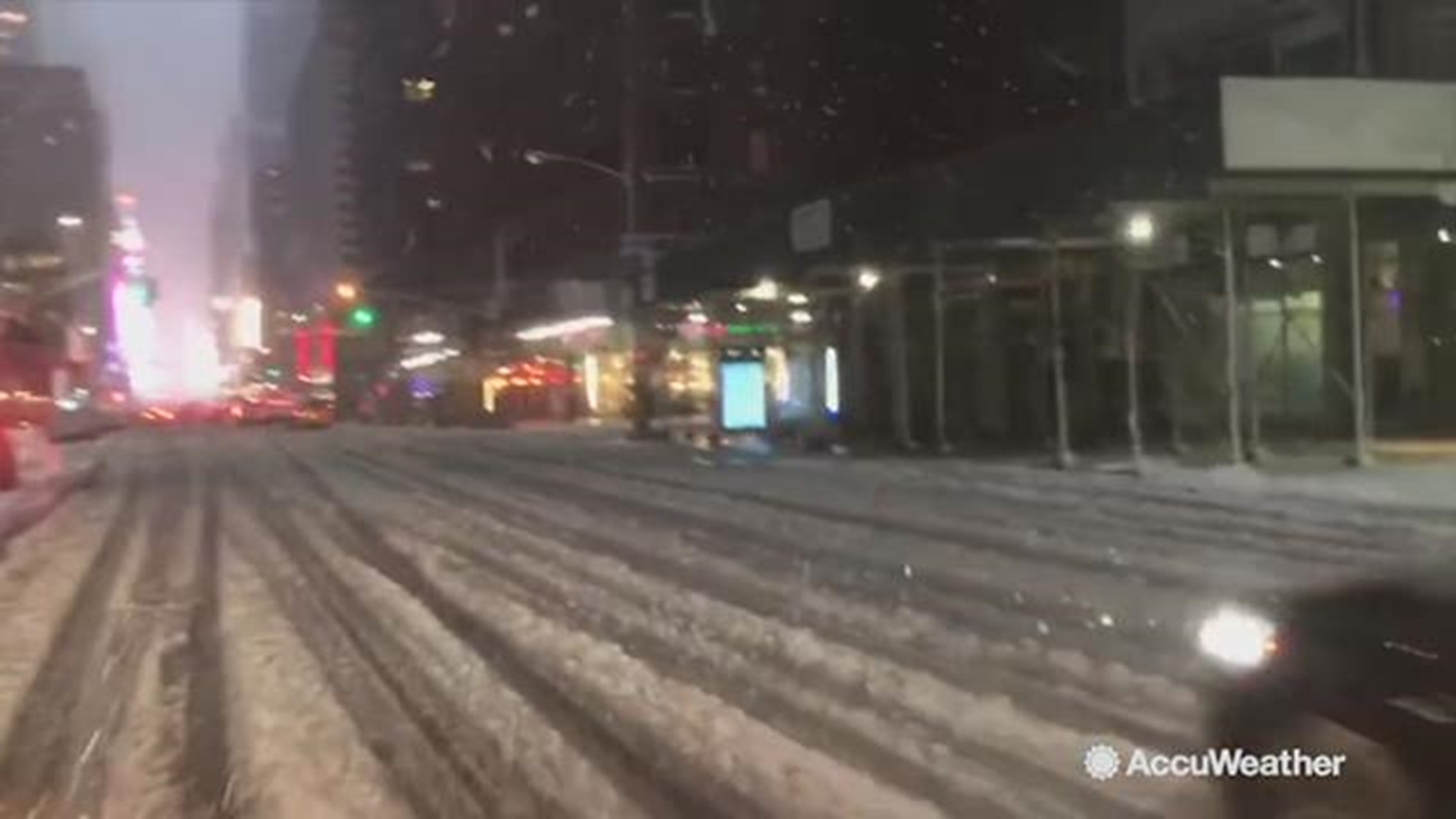RALEIGH, NC (WFMY) - North Carolina Governor Roy Cooper is urging North Carolinians to prepare in light of this weekend's anticipated winter storm, which would be the first one of the season. Cooper says power outages and slick roads are possible in the coming days.
The WFMY News 2 weather team agrees the Piedmont is likely to see hazardous and even dangerous travel at times on Sunday and Monday, with neighborhood roads potentially staying rough for several days. Power outages are a possibility given the likelihood that we'll see a heavy, wet snow. Possible ice, sleet and freezing rain could also cause problems.
“The forecast is still evolving, but we know that parts of the state are facing the potential for several inches of snow, and other forms of winter precipitation will also be a threat,” said Cooper. “Everyone needs to be ready for cold temperatures, hazardous driving conditions and the possibility of power outages.”
The mountains and foothills - along and north of Interstate 40 - are expected to see the most snow. Precipitation types across central North Carolina will be dependent on the track and timing of the storm.
The state says the best chances for snow are in the northwest Piedmont and along and north of the U.S. 1 corridor. Coastal areas could see minor flooding from heavy rain, gusty winds along the coast, some beach erosion, and coastal flooding.
North Carolina Emergency Management officials have several tips for preparing:
- Always keep enough non-perishable food in your home for three days.
- Keep fresh batteries on hand for weather radios and flashlights.
- Dress warmly. Wear multiple layers of thin clothing instead of a single layer of thick clothing.
- Properly vent kerosene heaters and keep any electric generators outside and away from open windows or doors to prevent carbon monoxide poisoning. Never burn charcoal indoors.
- Use a National Oceanic and Atmospheric Administration weather radio to monitor for changing weather conditions.
- Keep alternative heating sources and fire extinguishers on hand. Be sure your family knows how to use them.
- Store an emergency kit in your vehicle. Include scraper, jumper cables, tow chain, sand/salt, blankets, flashlight, first aid kit and road map.
Cooper advises keeping the elderly, disabled and pets in their emergency plan. It's recommended that:
- You make an emergency supplies kit for your pet and include medical records, a first aid kit, enough canned/dry food and water for 3-7 days and pet travel bag or carrier.
- You don't leave pets outside for long periods of time and bring pets inside when temperatures drop below freezing.
- You ensure your pet has a well-fitting collar.
- You move livestock and other animals to a sheltered location with food and water.
► Make it easy to keep up to date with more stories like this. Download the WFMY News 2 App: Apple Users, Android Users

